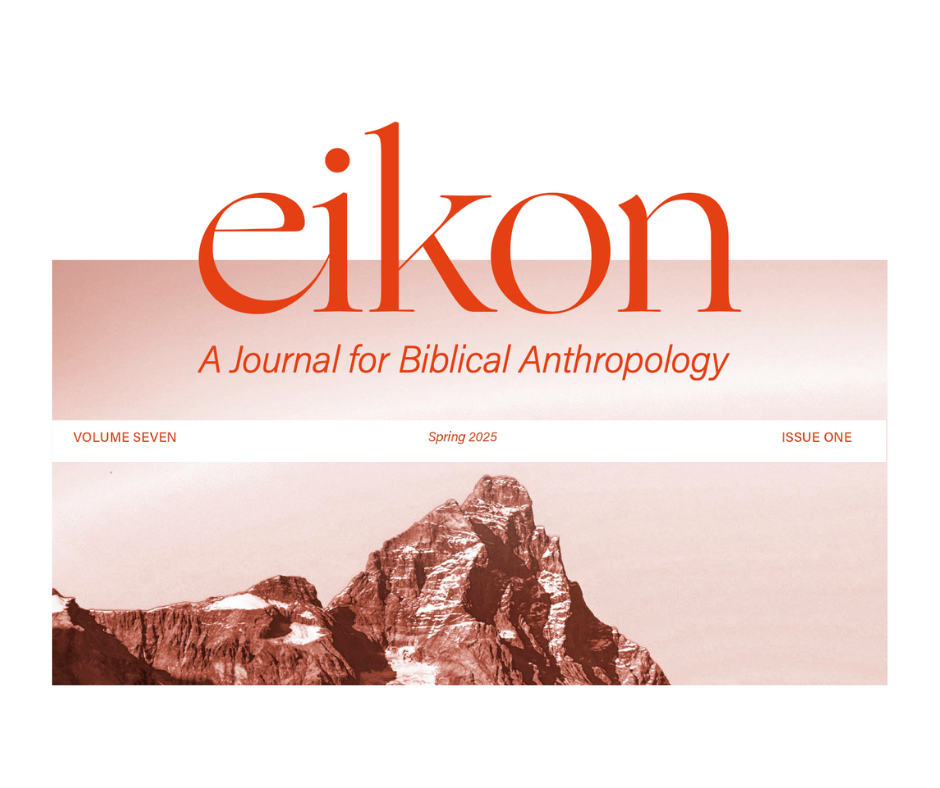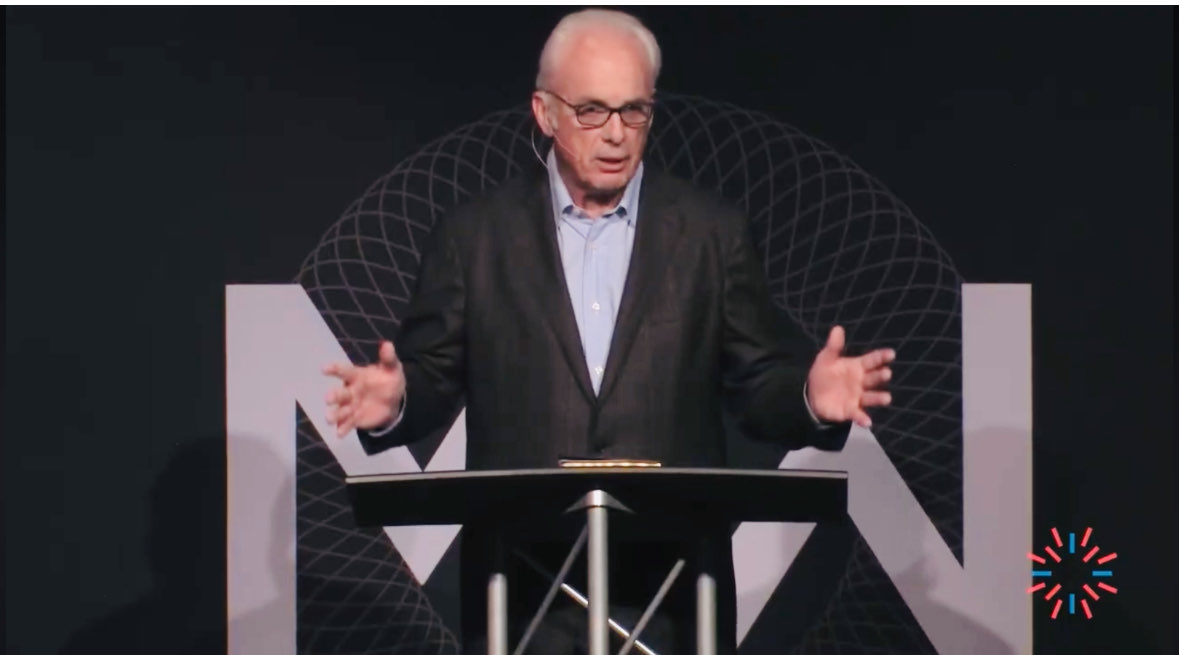
Editor’s Note: The following article appears in the Spring 2025 issue of Eikon.
In the midst of pursuing catholicity and a common faith in a multi-denominational world, we are sympathetic to the phrase, “Nicaea is enough” (NiE). By this people seem to mean that, when trying to articulate boundaries for orthodoxy and, thus, for who is and who is not a Christian, the Nicene Creed, or more often the Apostles’ Creed, serves as the arbiter. In this model, someone who affirms historic Christian teaching on the Trinity, the hypostatic union, the necessity of Christ’s work for salvation, the church as the people of God, and the expectation that Christ will return in glory should be considered a Christian. We as Baptists can agree with a wide range of denominations and traditions on these fundamental points, even as we recognize a need to articulate more fully various theological and ecclesiological nuances that are both addressed and not addressed in the creeds.
However, sometimes NiE is an appeal to the acceptability of holding either doctrinal and/or moral standards beyond what was laid down in the creeds. Doctrinally, for instance, bibliology is not addressed in the creeds; therefore, according to this NiE way of thinking, Christians can believe a whole host of different positions about Scripture. NiE has, for example, been used as part of a much larger paradigm arguing against the recent Baptist emphasis on inerrancy.[1]
On the issue of morality, NiE has become a recourse for some to say that, for instance, sexuality is not addressed in the Creeds, and therefore Christians can believe a whole host of different ideas about gender and sexuality.[2] In this scenario, NiE is employed not as a genuine attempt at doctrinal catholicity, but as a euphemism for capitulating to our current cultural climate regarding gender and sexuality. Rather than an attempt at maintaining and retrieving classical Christian orthodoxy in a new context, this sentiment attempts to slide non-traditional teachings through a supposed creedal gap. This approach is moral revisionism — an attempt to revise Christianity’s traditional moral teachings while attempting to maintain a status in or relationship to the church.
What can we say to this? As evangelicals who love the creeds, we believe there are at least three responses we can give to this sentiment and ultimately claim that Nicaea, or even the three ecumenical creeds and seven ecumenical councils all together, is not enough to measure what is properly a Christian confession.
Scripture Is the Ultimate Authority, Not Creeds
The first and most important point to make here is that the creeds and councils are not the ultimate arbiter of what counts as properly apostolic. That position, from a Protestant perspective, lies ultimately with Scripture alone. While creeds and confessions help codify, at a particular historical moment, the church’s ministerially and derivatively authoritative summary of Scripture, it is Scripture alone that holds the primary place. Therefore, even if we do not have a creed that addresses an explicit departure from Scripture, it is still just that — a departure from Scripture. Further, many Protestants feel free to reject the seventh ecumenical council’s decision on icons because they deem it a departure from Scripture, while still holding fast to the Nicene Creed and Chalcedonian Definition as faithful summaries of biblical truth. And Scripture is clear that there are simple errors and then there are departures — the former, mistakes to be corrected; the latter, clear rejections of biblical teaching that result in communal exclusion. This leads to the next point.
Scripture Addresses Various Types of Errors that Lead to Excommunication
The idea that only those issues addressed by the early church warrant excommunication misses the force of many scriptural statements about casting out false teachers and those who live in unrepentant sin. While many assume that “false teaching” is only directly related to doctrinal issues, like John’s forceful argument against docetism in 1 John 4, Scripture does not limit false teaching to doctrine. For instance, Jesus threatens covenant exclusion for those in the churches of Pergamum and Thyatira who follow, respectively, the Nicolatian and Jezebelian teachings about sexual immorality (Rev 2:14–15; 19–23). We could add to this the instances where Paul addresses excommunication and ties it explicitly to divisiveness (e.g. Titus 3:10). The Jerusalem Council addressed several issues for admitting Gentiles into the faith, including abstaining from sexual immorality (Acts 15). In 1 Corinthians 5, Paul commands the church to excommunicate a man for committing sexual sin and includes homosexuality in the list of sins only a chapter later.
The point is that exclusion from the covenant community is not limited in Scripture to doctrinal issues, nor to some kind of arbitrary doctrinal ranking system. Instead, it covers doctrinal, moral, and communal rejections of biblical authority. Though chapter-and-verse citations are enough to reveal serious errors in Scripture, we also must pay attention to patterns and types. For instance, same-sex sexual relationships are certainly condemned specifically in a number of passages (Lev 18:22; Rom 1:26–28; 1 Cor 6:9–10). But we do not merely have these passages as reference. We can also point to larger theological patterns, like the creation of “male and female,” whose complementarity includes the ability to procreate in Genesis 1–2 or the metaphor of Christ and the church being wrapped up in the marriage of a man and woman (Eph 5:22–33). Both the Bible’s explicit words and fundamental patterns reveal that from Genesis to Revelation, same-sex sexual relationships are not only frowned upon or prohibited, but cut at the very root of God’s design for mankind and its telos in the new creation with Christ.[3]
The Creeds Are Contextual, Not Exhaustive, Documents
It should be obvious from studying church history that the councils and creeds arose out of specific controversies about specific issues. For instance, the Nicene Creed dealt primarily with the issue of Christ’s divinity. Constantinople dealt with numerous trinitarian and christological errors. Ephesus and Chalcedon continued to hone the church’s articulation of orthodox Christology. These councils dealt with other issues, of course, like the Christian calendar and pastoral ethics. But simply put, there was no major controversy facing the church over gender and sexuality in the first centuries of the church’s existence.
Brandan Robertson muses that the creeds were formulated by imperial puppets who only cared about what the Emperor cared about, but
if Christianity hadn’t been co-opted by the Empire . . I believe the question of homosexuality and gender would have been addressed in a more ‘mainstream’ Christian context hundreds if not thousands of years before it was. Any student of church history knows that everything considered “orthodoxy” today was a product of imperial influence — the early church fathers that were appointed to Councils at Nicaea, Chalcedon, etc., were people that had risen through the ranks because they proved themselves faithful to the Emperor.[4]
This cynical argument from silence falls flat on “any student of church history” on several fronts, but we will point out the most obvious for our purposes here.[5] The creeds were products of Christian teachings in the church, not merely products of conciliar debate. Every major council deliberated in large part already-existing writings and teachings that were in dispute. Thus, we know as much or more about the creeds’ intent and hermeneutic by reading letters, sermons, and treatises from Christian leaders of the day. They did not show up with a blank slate and an itinerary from the Emperor. For example, Arius had already been condemned by the African church long before Constantine called the Council of Nicaea.
So, in the scenario presented by Robertson, we would need evidence that this was a disputed issue among early Christian leaders, or that there was a contingent who affirmed same-sex sexual relationships even though a council never arose to deal with it. Given the writings of the early church and the clear taken-for-granted view that there were two sexes and marriage was between a man and woman, we could surmise rather easily that a council would have called this a heresy had the issue arisen. It simply would have been a departure from moral orthodoxy in the minds of early Christians. As with Irenaeus’s clash with the “Gnostics” or the fourth-century debates over the Trinity and Christology, the church was not in search of a doctrine, but rather responded to views that proved disparate from the church’s teaching and that affected laypeople and ecclesial practice. Certainly a large contingent of church leaders — or even one influential dissenter — arguing for the orthodoxy of homosexual practice or gender-alteration would have been seen as divergent from the church’s teaching, or at least would have caused controversy.[6] This never happened, for a reason.
Further, while the doctrines of the Trinity and Christology were relatively settled by the three ecumenical creeds and seven ecumenical councils, these are not the only doctrines that caused first-order controversies. One only needs to remember the Reformation to realize that, in that case, the doctrines of soteriology (especially justification) and ecclesiology still needed to be clarified at an ecclesiastical level. For Protestants, the five solae of the Reformation function similarly to creeds as foundational boundary-markers for orthodoxy, even while they are not technically formalized in a creed. The point is that, as important as the three ecumenical creeds and seven ecumenical councils are, they did not address every doctrinal issue that could be considered of first importance. In the midst of two-thousand years of various debates and even schisms, it is telling that the issue of gender and sexuality was never disputed enough to cause even a minor stir until recently, after the divergent views of the Sexual Revolution began to infiltrate the church.
Of course, this does not mean that Nicaea does not address at all issues of anthropology, or bibliology, or even soteriology and ecclesiology. As Luke Stamps has noted, the Creed assumes both an anthropology — “for us men” — and a hamartiology — “for the forgiveness of sins.” The idea that either of these attenuated statements, about doctrines that were not under dispute at the time, leave room for contemporary, novel, deviant views on gender and sexuality is, frankly, ludicrous. While the writers of the Niceno-Constantinopolitan Creed did not spell out their views on anthropology or hamartiology, they certainly held them clearly and closely, and their basic statements ought not to be read anachronistically to allow for views they most definitely would have rejected. To reiterate, they did not spell out their views on anthropology or hamartiology because there was no controversy about those issues in their day. But that does not mean that there are not contexts in which those issues do need to be addressed — contexts like our own.
And this brings us back to the former aspect of creeds and confessions that NiE ignores: they arise out of specific socio-cultural situations where certain doctrinal controversies must be addressed. In the providence of God, the church first had to deal with the Trinity and Christology. But this doesn’t mean that controversies surrounding other doctrines are not of first-order importance. Of course, that doesn’t mean that every controversy is of first-order importance. But it does mean that some deviations from traditional Christian teaching are. The patristic and early medieval period addressed the Trinity and Christology; the Reformation addressed soteriology and ecclesiology; and it seems to us that, today, we need to address bibliology and anthropology.
The way to tell if modern deviations from traditional Christian teaching are first-order departures brings us back to the first point: does it clearly depart from the apostolic deposit, Holy Scripture, and in such a way that it can be characterized as a rejection of Scripture’s authority? Does it require such a fundamental reformulation of traditional Christian teaching that it would be unrecognizable to any Christian prior to 1950? Yes, people can come to different interpretive conclusions, but this does not make them all correct. And as Protestants, our theological method calls us to return to Scripture again and again.
Nicaea Is and Is Not Enough
In conclusion, we might say that Nicaea both is and is not enough to articulate orthodox Christian teachings. It certainly is enough in terms of offering a basic summary of Scripture’s teaching on Christ’s divinity and the purpose of incarnation. It is not enough, however, to arbitrate every jot and tittle of Christian orthodoxy and ecclesial catholicity. Moral revisionists who point to the creeds as the only measure of orthodoxy run into three major roadblocks. First, because Scripture is our ultimate authority. Second, because doctrinal assent is not the only scriptural measure for inclusion in the covenant community of God. And third, because the councils and creeds were never meant to be exhaustive articulations of Christian orthodoxy. Every generation has its own theological challenges, and they must meet them with the final arbiter of truth — Holy Scripture.
[1] Steven R. Harmon, Toward Baptist Catholicity: Essays on Tradition and the Baptist Vision (Eugene, OR: Wipf & Stock / Paternoster, 2006).
[2] See, e.g., Jonathan Merritt, “Why I’ll take courageous Jen Hatmaker over her cowardly critics any day,” Religion News Service, May 2, 2017, https://religionnews.com/2017/05/02/why-ill-take-courageous-jen-hatmaker-over-her-cowardly-critics-any-day/.
[3] See the comprehensive study of Robert A. J. Gagnon, The Bible and Homosexual Practice: Texts and Hermeneutics (Nashville: Abingdon, 2002).
[4] Brandan Roberston, The Gospel of Inclusion: A Christian Case for LGBT+ Inclusion in the Church (Eugene, OR: Wipf & Stock, 2019), 90.
[5] Space limits us from addressing the Constantinian practice of largely allowing the church to adjudicate its own disputes, he and his sons’ various agreements and disagreements with bishops, and his willingness to allow the church to reject even his own suggestions of reinstating those deemed heretical (for example, his attempted rehabilitation of Arius).
[6] A few obvious examples of many: in Contra Celsum, Origen of Alexandria uses homosexual practice in Romans 1:27 to describe pagan ethical debauchery. Eusebius of Caesarea lists marriage between same-sex couples as “unlawful” in his Demonstratio. Both Clement of Alexandria in his Pedagogue and Jerome in his commentary on Isaiah refer to Genesis 19:5 in describing Lot’s visitors as committing homosexual sin.
Share This Article



